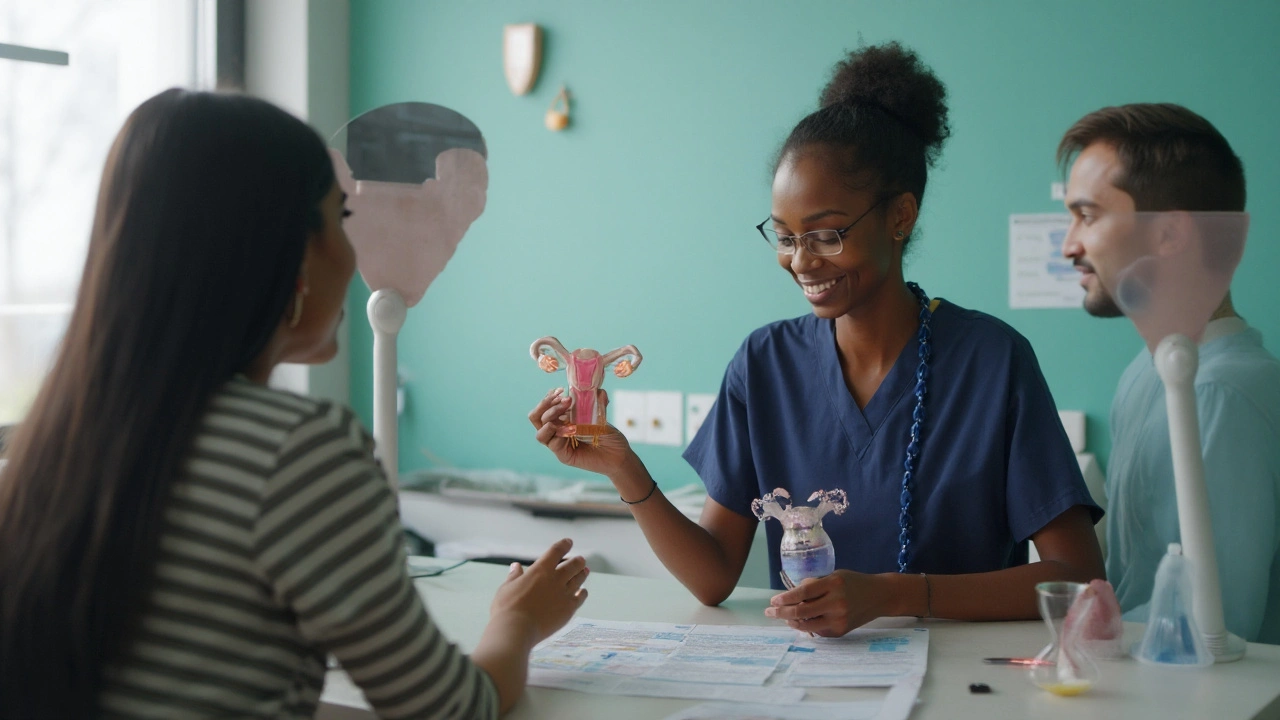Fertility After IUD: What Happens When You Remove Your Contraceptive
If you've had an IUD for a few years and are ready to start a family, the first question on most minds is: how quickly can you get pregnant? The short answer is that most people conceive within a few months after removal, but the exact timeline depends on the type of IUD and your personal health.
How Fast Does Fertility Return?
Both copper and hormonal IUDs are designed to block sperm, not change your ovaries. As soon as the device is taken out, the blockage is gone. For many, ovulation resumes within the first cycle. That means you could see a positive pregnancy test in as little as six weeks, especially if you’re already ovulating regularly.
Some hormonal IUDs, like Mirena, release levonorgestrel, which can thin the uterine lining. After removal, the lining usually builds back up by the next cycle. In most cases, this doesn’t delay fertility, but a few people notice a short adjustment period.
Things That Can Influence Your Timing
Age is the biggest factor. Women under 35 typically see a faster return to fertility than those over 35. Your overall health matters, too—weight, stress levels, and underlying conditions like thyroid issues can affect ovulation.
How long the IUD was in place can play a small role. A copper IUD that’s been there for many years may cause a minor increase in cervical mucus, but this usually normalizes quickly. Hormonal IUDs may take a couple of cycles for your natural hormone balance to settle.
If you’ve been using condoms or other backup methods while the IUD was in place, your body might be ready for pregnancy right away. But if you’ve been using the IUD as your sole contraceptive for years, give your body a little grace period to readjust.
One practical tip: start tracking your cycle as soon as the IUD is out. Use a basal body temperature chart or an ovulation predictor kit to pinpoint fertile days. This not only boosts your chances but also gives you peace of mind.
Have any concerns about irregular periods after removal? It’s normal for the first cycle to be a bit off. If you notice no periods after three months, or if you have heavy bleeding, reach out to your healthcare provider.
Overall, most people bounce back quickly. The key is to stay informed, keep an eye on your cycle, and talk to a doctor if anything feels off. With the right timing and a bit of patience, you’ll be on your way to starting the next chapter of your life.

Contraception and Infertility: Myths vs Facts Backed by Science
Worried birth control hurt your fertility? Get science-backed facts on pills, IUDs, implants, and shots, plus timelines, checklists, and when to seek help.
Read more